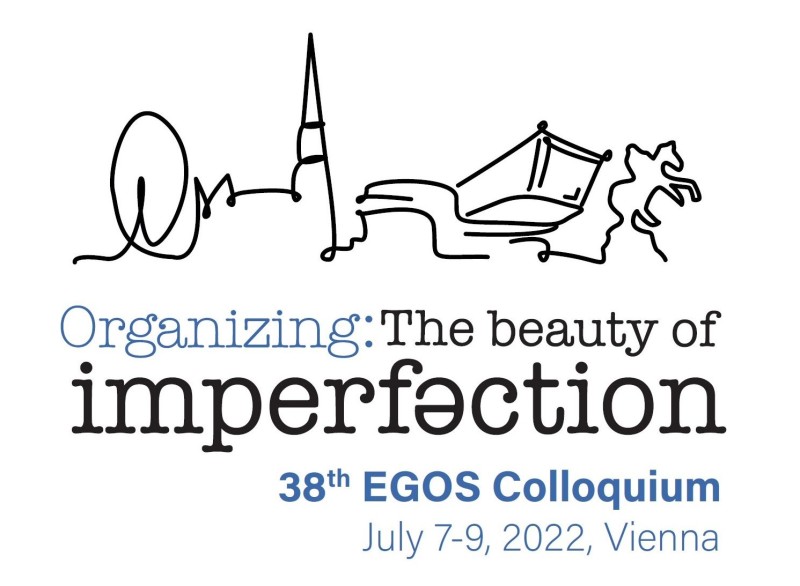Sub-theme 45: New Studies of Business Elites: Imperfection Writ Large?
Call for Papers
Business elites can be defined as “the possessors of power and wealth and celebrity [...] whose positions enable them to
transcend the ordinary environments of ordinary men and women, [their decisions] having major consequences” (Mills, 1956:
13, 3-4). This includes senior organizational leaders, often coterminous with owners of capital. Investigating them involves
examining resources they control, positions this enables, and other forms of capital this facilitates. It means “studying
power and inequality – from above” (Khan, 2012: 362).
Such examinations are acutely timely. Business elites
figure prominently in the rise of economic inequality to levels not seen in a century (Khan, 2012): globally, a group of 2,153
billionaires – many of whom are corporate leaders – have more wealth than 4.6 billion people. This wealth distorts democratic
processes through outsized influence on elections and law-making (Harrington, 2016). Recent examples include the US$60 million
offshore “war chest” created by American financier Robert Mercer to fund the Trump and Brexit campaigns of 2016, or the US$8.8
donation Amazon.com made to politicians running in the 2020 US elections. The consequence has been elite capture of many state
institutions, paid off in lack of punishment for increasingly brazen displays of impunity in the face of laws and social norms:
several of the same people who escaped consequences after exposure in the Panama and Paradise Papers made headlines again
this year for refusing to wear masks during the pandemic. The elites of today represent “a noblesse without the oblige”
(Harrington, 2020).
Elite spaces in the business world are also highly gendered and racialized, reproducing
systemic disadvantages. For example, among executives of the top 100 corporations in France and the UK, only 4.4% were women
(Maclean et al., 2006). Similar patterns have been observed among elite professional groups. In Harrington’s (2016) study
of wealth managers – whose main task is the reproduction of economic and political power among their elite clients – only
about 29% were women. 70% of the same wealth managers are also white people from Europe, North America or Australia/New Zealand.
Despite the sweeping implications of these findings for organizations, management and the political economy,
dedicated studies of business elites remain relatively rare in our field. Where empirical work has been done on chief executives,
top teams and boards, it has seldom been situated within the broader elites literature. The effect is a narrowing of such
works’ explanatory scope and a reduction of its potential for inter-disciplinary relevance, as well as a lessening of scholarly
capacity to gain broader societal resonance at this critical time.
Our aim is thus to highlight the potential
of management and organization studies to make more wide-ranging contributions, by forging closer connections with vibrant
streams of research in related disciplines. This includes the study of elites within Sociology and Political Science, as well
as the analysis of power by scholars in Critical Management Studies. The latter have long examined the dynamics of power and
distance at work, along with the invisibility of power, the role of intermediaries, and elites’ ability to co-opt organizations
to advance their personal interests (e.g. see Clegg et al., 2006). Management studies scholars, in turn, have investigated
elite legitimation narratives, along with the role of artefacts and constraints in context (e.g. see Korica et al., 2017).
We also welcome studies of business elites in non-corporate contexts, such as philanthropy or “philanthrocapitalism”
(Farrell, 2020; McGoey, 2016), or the elite party circuit (Mears, 2020). We cast a broad net in the effort to engage these
and other related streams of research into generative new scholarly dialogue about business elites. This includes themes like:
Connections between past and present business elites, the transition from wealth based on earlier trade in human bodies and addictive drugs to the role of Modern Slavery and contemporary pharma-capitalism
Novel emerging forms of capitalism sustaining elites; class formation and dissolution
Different and contrasting understandings of elite belonging (‘are we really elite?’)
Different analytical foci, e.g. resources, individuals, relations, consumption, power
Reproduction of business elites: rituals, symbols, spaces, gestures, speech, structures
Gatekeeping and purposeful invisibility, e.g. work of PAs and staff, facilitators like wealth managers or tax havens, geographical distancing, doomsday ‘prepping’
Consequences of elite activity, from impact on education, media and public life, to state income tax, inequality and corporate concentration, and revolving doors
Gender, race and other features of diversity; the challenges of inclusion
Studying elites practically: access, diversity in methods, interdisciplinarity
References
- Clegg, S.R., Courpasson, D., & Philipps, N. (2006): Power and Organizations. London: SAGE Publications.
- Farrell, J. (2020): Billionaire Wilderness: The Ultra-Wealthy and the Remaking of the American West. Princeton: Princeton University Press.
- Harrington, B. (2016): Capital without Borders: Wealth Managers and the One Percent. Cambridge: Harvard University Press.
- Harrington, B. (2020): “Trump’s very ordinary indifference to the common good.” The Atlantic, accessed from: https://www.theatlantic.com/ideas/archive/2020/10/trumps-very-ordinary-indifference-to-the-common-good/616675/
- Khan, S.R. (2012): “The sociology of elites.” Annual Review of Sociology, 38, 361–377.
- Korica, M., Nicolini, D., & Johnson, B. (2017): “In search of ‘managerial work’: Past, present and future of an analytical category.” International Journal of Management Reviews, 19 (2), 151–174.
- Maclean, M., Harvey, C., & Press, J. (2006): Business Elites and Corporate Governance in France and the UK. Cham: Palgrave Macmillan.
- McGoey, L. (2016): No Such Thing as a Free Gift: The Gates Foundation and the Price of Philanthropy. London: Verso Books.
- Mears, A. (2020): Very Important People: Status and Beauty in the Global Party Circuit. Princeton: Princeton University Press.
- Mills, C.W. (1956 [2000]): The Power Elite. Oxford: Oxford University Press.


